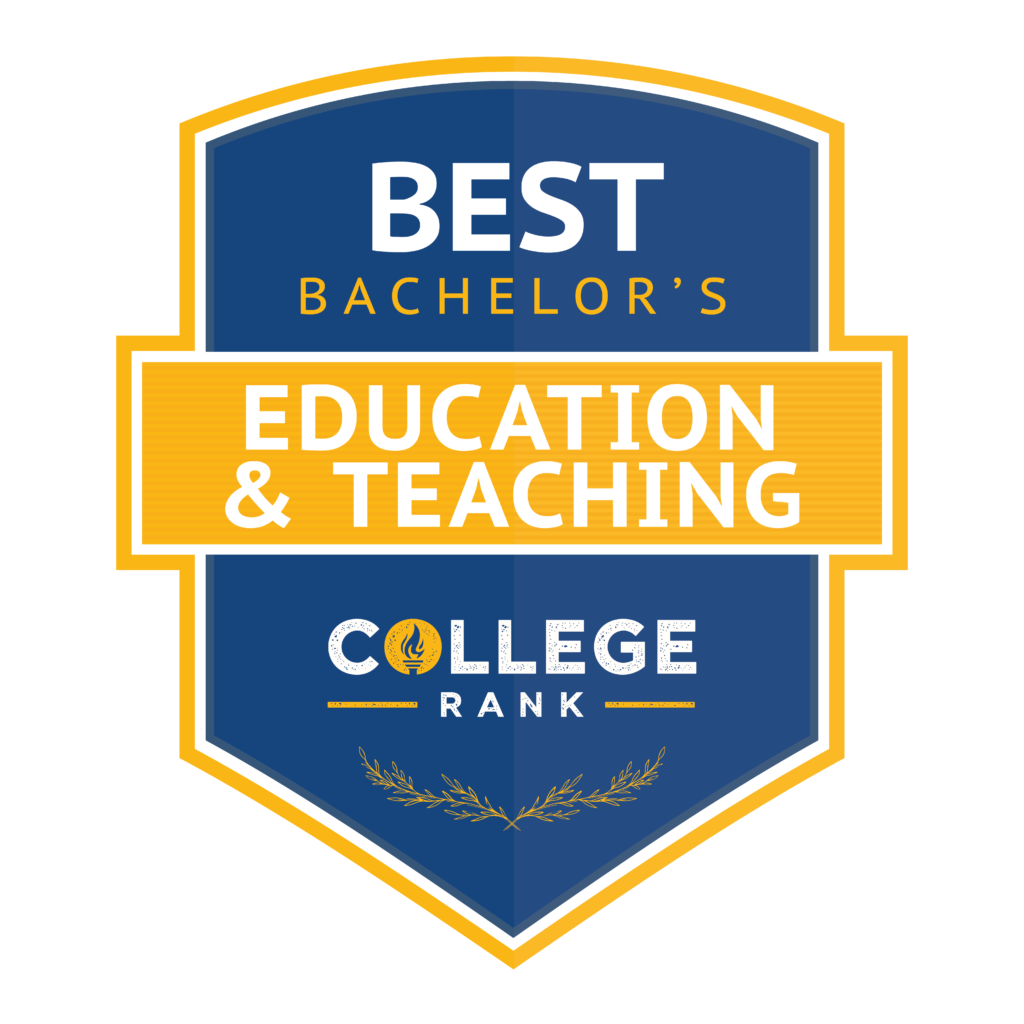A well-known proverb goes like this, “Give a man a fish, and you feed him for a day; show him how to catch fish, and you feed him for a lifetime.”
Teachers and those in education have one thing in common: they want to help others pursue success, whether it is in academics or other areas. It’s no wonder why teaching and education jobs are some of the most rewarding careers.
A bachelor’s in education and teaching will lead to a rewarding career working with students of all levels in a myriad of educational settings. If a career in education sounds like you, a bachelor’s in education and teaching can help you reach your goals.
Related (Campus):
- Top Undergraduate Math Programs
- Top Bachelor’s Degree in Science Education
- Best Bachelor’s Degrees in Secondary Education
- Top Bachelor’s Degrees in Adult Education
Related (Online):
What Are the Best Bachelor’s in Education and Teaching Degrees?
At CollegeRank, we strive to do our best to guide you and your family toward a fruitful academic career. The pursuit of knowledge is a noble one, and we want to help you reach your goals. Please feel free to visit our dedicated methodology page for a step-by-step breakdown. For questions, comments, badge downloads, or data corrections, please feel free to reach out to us at editor@www.collegerank.net.
Purdue University

Purdue University’s Bachelor of Arts in elementary education stands out because it combines theoretical coursework and field experience simultaneously. While most education and teaching programs require students to take core classes before they start clinical practices, PU requires them concurrently, meaning what is learned in the classroom is enforced through practical experiences right away.
In this program, students will take courses such as Multiculturalism and Education and The Inclusive Classroom to develop and increase awareness of diversity and inclusion. Clinical practice may be on Purdue’s campus, through Indianapolis Public Schools, or in Texas, Arizona, New Mexico or overseas. Courses are grouped together and taken in six semester blocks that accompany field experience.
Students complete 128 credit hours, including 32 credit hours in 300 level or above courses, while maintaining a minimum GPA of 2.8 will be eligible for teaching licensure in Indiana. Graduates are qualified to teach all subjects to elementary school students, from kindergarten through 6th grade, in public or private schools in all 50 states.
University of Washington-Seattle Campus
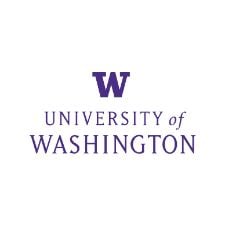
With the motto, “Every Day You Educate,” the University of Washington offers a unique bachelor’s degree in education, communities, and organizations (ECO). This program is based on the belief that education occurs not only in the classroom, but also across other areas such as youth development, business, healthcare, and other organizations that serve their communities.
Through core and elective courses and a capstone internship, students will use knowledge and skills in human development, equity studies, and organizational change. With this degree, students can pursue a myriad of careers in not only various aspects of education, but business, advocacy and outreach, community development, and more.
A minor in education, learning, and society is also an option in this program. This major requires 65 total credits, including 50 of core and elective courses and 15 towards the capstone project. To apply for the ECO program, students need 60 credits at UW or appropriate transfer credit and a minimum GPA of 2.5.
Florida International University

Florida International University in Miami offers a plethora of education and teaching programs, including undergraduate, graduate, and non-degree certificate curriculums that are geared toward a variety of settings. Specifically, FIU’s Bachelor of Science in elementary education focuses on teaching students how to influence educational policy while driving student achievement.
Two tracks are offered through this program: career development and grades K-6 with ESOL and reading endorsements. Career development majors are trained in working with schools and communities for student advocacy, and this track does not include teacher certification. ESOL and reading endorsement majors will teach grades K-6 to earn reading and TESOL endorsement.
Students in both tracks will take courses such as Managing Teaching Environments and Language and Literacy, along with clinical experiences, to fulfill 60 credit hours. For admission into this program, students need 60 hours of undergraduate courses from an accredited institution (minimum GPA 2.5), and a passing score on the Florida Teacher Certification Exam (FTCE).
Arizona State University
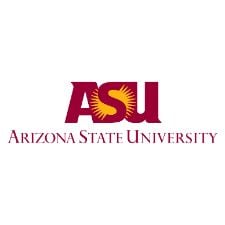
Those interested in teaching math at the high school level, this program is for you. Want to study abroad, too? Even better! Arizona State University’s BS in mathematics with a concentration in secondary education provides a degree in both math and education with choices to either pursue graduate school, a career in business, finance, or technology, or teaching high school math.
This program is proactive, beginning with MAT 270 Calculus with Analytical Geometry 1 and a mentored tutoring internship in the first semester. Other courses include Technology and Mathematical Visualization and Instruction and Management in the Inclusive Classroom. Students will obtain solid content knowledge in complex areas of mathematics and the skills to teach concepts to a high school classroom.
Additionally, students in this program are eligible to study abroad where they can experience a variety of cultures, “anywhere from Mexico to Finland.” With a rigorous curriculum combined with courses, internships, and even global experience, graduates are prepared for the joys and challenges of high school teaching.
University of Wisconsin–Madison
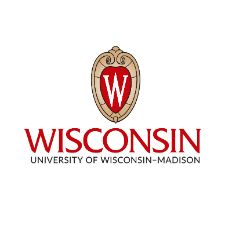
If you don’t see yourself teaching in a classroom, but are interested in becoming a leader in educational policy and reform, University of Wisconsin-Madison’s Bachelor of Science in educational policy studies is for you. This program addresses domestic and global education policy, and graduates may work in educational and/or government agencies, domestic or international organizations, policy institutes, and more.
The educational policy studies major may be completed as a primary major or as a double major. Students will satisfy three components in this program: liberal studies and general education courses, major coursework that focus on a U.S. or global concentration, and elective credits that reflect the student’s interests.
Required courses include Comparative Education and Human Rights and Education. Students must maintain a 2.5 GPA in order to graduate. ASU employs a “Last 60 Credits Rule,” meaning that GPAs are calculated using all transferable college coursework, and the last 60 credits attempted. The higher GPA is used between these two categories.
Western Governors University

A cost-effective, flexible program, WGU’s Teacher College was awarded the Best Value in Teacher Education by the National Council on Teacher Quality. WGU offers a Bachelor of Arts in elementary education that is completely online. Along with general education courses, students take eight professional core classes, ten elementary education classes, pre-clinical experiences, and demonstration teaching.
The flexibility and cost are both perks of this program. Students can work at their own pace through the coursework. Pre-clinical experience requires 75 hours of teaching observation to develop knowledge of the elementary classroom. The demonstration teaching (DT) prepares students to teach in classrooms through 12-20 weeks of full-time, supervised in-classroom teaching.
WGU offers a rolling entry on the first of each month, making this program a convenient one. You can expect an intake interview, which is a 20-30 minute phone interview. Even though this program is 100% online, you will have a supportive “team” available every step of the way.
University of Illinois at Urbana-Champaign
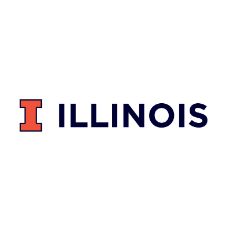
The University of Illinois at Urbana-Champaign started in 1867 with a mission of teaching, research, and public service. Today, UIUC is nationally recognized by U.S. News & World Report for academic excellence. They offer several teaching and education degrees, including a Bachelor of Science in elementary education that prepares future K-6 teachers for classroom instruction.
In this program, students will take interesting courses to build their knowledge and skills on the elementary student such as KIN 268 Children’s Movement and EDUC 201 Identity and Difference in Education, Social Justice, School and Society. In addition to coursework, students will complete school and community field experience where they apply the knowledge and skills.
Prior to admission into this program, students must pass the Illinois Licensure Testing System for Basic Skills. Students must maintain a minimum 2.5 GPA and earn a C or higher in all courses. Students pursue this degree on campus with seated classes and in-person support, so if you live in or near Urbana-Champaign, this program may be what you are looking for.
University of Maryland-College Park
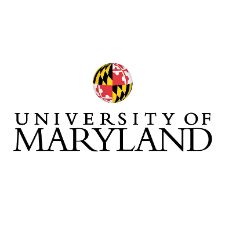
The University of Maryland features a Bachelor of Science in elementary education that focuses on equipping its students to meet the needs of the evolving, diverse student population in the 21st century. This program takes four years to complete, which includes field experiences and a year-long internship in the final year of the student’s studies.
Students take 30 credit hours per year and must earn a C- or higher in each class. A range of courses such as Digital Learning Tools and Communities and Culturally Responsive Language and Literacy in Elementary Classrooms are required. In year three, students will complete field experience internships in elementary classrooms before they begin the year-long internship the next year.
For admission, students need at least 45 credits and a cumulative GPA of 2.75 or higher. Those with at least a 3.0 have a better chance of acceptance into the program. In addition, applicants need to have experience in working with elementary-aged children, three letters of recommendation, and a written goal statement.
North Carolina State University at Raleigh

NC State offers a unique degree: a Bachelor of Science in elementary education with a focus on science, technology, engineering, and mathematics for rigorous SteM-focused instruction. This is the only SteM-focused elementary education program in the state of North Carolina. No, SteM is not a typo. NC State uses this acronym to show that the program emphasizes math and science, and covers technology and engineering to a lesser degree.
This rigorous but fulfilling education program includes 27 credit hours from SteM content, including Calculus and Conceptual Physics for Elementary Teachers, along with pedagogy and literacy courses. The faculty to student ratio is 14:1, so expect a lot of personal instruction and guidance from your professors.
During your junior year, you will be placed into a cohort with other students from the program. The final year will entail applying the knowledge from the coursework with nine-credit hours of student teaching. Interested in NC State’s SteM program? You need a 2.75 cumulative GPA and a passion for teaching children. And if you’re reading this, you probably do!
Florida Atlantic University
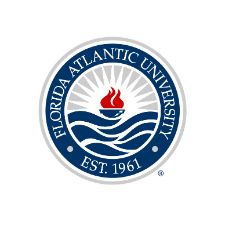
A vibrant, energetic university, Florida Atlantic University spans 110 miles across the southeast Florida Cost in six campus locations. FAU features a Bachelor of Arts in exceptional student education to prepare students to teach children and youth with learning and behavioral disabilities. Graduates are eligible to apply for Florida’s teaching license in exceptional student education in grades K-12.
“Exceptional children” is an umbrella term that includes students with learning disabilities, emotional, mental, or behavioral disorders, or physical impairments. This BA in exceptional children education includes a sequence of courses that must be taken in order depending on whether you start in the fall or spring.
Sample classes include Language and Speech Disorders, Reading Diagnosis and Remediation, and Developing Individualized Education Programs. Courses are offered at four different campuses, including Boca Raton, Davie, Jupiter, and Treasure Coast, as well as online. Before acceptance into this program, students need to pass the General Knowledge Test (GK) and have a 2.5 GPA or higher.
University of Michigan-Ann Arbor

The University of Michigan’s school commits to promoting and advancing diversity and equity in faculty, staff, and students. They offer an option of a Bachelor of Arts or Science in elementary teacher education or undergraduate secondary teacher education. Whether you want to teach elementary or high school, UM has you covered!
As soon as you are accepted into this program, you will be called a “teaching intern,” and it’s not just a term. You will begin practicum hours during your first semester to reinforce the coursework you are learning. An effective practice, combining hands-on experience right away will give you the ability to jump right into the world of teaching.
Graduates of the elementary teacher education program are eligible to teach all subjects in K-5 and grades 6-8 in certain subject areas. The secondary teacher education is a three-year program that prepares students to teach grades 6-12. You will need to choose one or more “endorsement areas” and take 20-30 credit hours in the subjects you plan to teach.
Louisiana Tech University
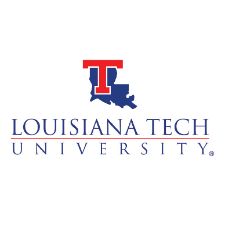
The Tech Family thrives off its diversity. Students from 47 states and 64 countries call Louisiana Tech University in Ruston, LA their home. LTU offers a variety of teaching education programs including the Bachelor of Science in elementary education and special education, a 126-credit hour program to prepare students for teaching first through fifth grade children with mild to moderate special needs.
As a student, after completing general education hours, you will devote 21 credit hours to your primary content area, 15 credit hours to the students and educational environment, 15 hours in methodology and teaching, and 21 hours based on your interests. Courses include Literacy Development Through Word Study and Behavior and Classroom Management.
LTU’s teaching programs have been recognized by TPI-UP as one of the most innovative in the country in literacy training. This program is approved by the Louisiana State Board of Elementary and Secondary Education (BESE) and accredited by the National Council for the Accreditation of Teacher Education (NCATE).
Fort Hays State University

If your goal is to teach elementary school, and you are looking for a rigorous, nationally recognized program to help you get there, check out Fort Hays University. The Department of Teacher Education at Fort Hays University Kansas has earned national rankings in both their online and on-campus programs.
The BS in elementary education combines educational theory and pedagogy with hands-on experience to prepare teachers for K-6 teaching licensure. This 127 credit hour program has 33 credit hours of methods courses, internships, and student-teaching. Students can complete up to two internships per semester to solidify the knowledge they gain from coursework. Courses include Literacy Methods, Curriculum and Assessment, and Intro to Instructional Technology.
Applicants to this program should complete four pre-professional courses such as Foundations of Education and Introduction to Instructional Technology with a C or better. They also need a cumulative GPA of 2.75+ and appropriate scores on either the ACT, SAT, or Core exams. If you already have a bachelor’s degree, you are exempt from submitting these scores.
University of California-Irvine

If you are interested in an educational career that spans beyond the classroom, check out the Bachelor of Arts in education sciences from the University of California at Irvine. This program does not prepare students for a teaching license, but for those who want to work in fields such as educational research and informatics, software development, or it could be a gateway to graduate school.
This program is best described in the five core concepts of education sciences:
- Social structures and stratification
- Human development
- Learning
- Policymaking in education
- Schools as organizations
Love research? Even better. This program teaches students to evaluate and analyze the quality of educational scientific research. You can choose up to two specializations like digital media, children’s development, or educational research.
UCI’s Department of Education admits students to this program once per year, with enrollment beginning in September. They review applicants holistically by looking at academics, the potential to succeed in the field, and personal stories. They write on their webpage that they “welcome diverse learners, innovative thinkers, returning students, dreamers, and others who want to make a difference in our world” (UCI website).
Michigan State University
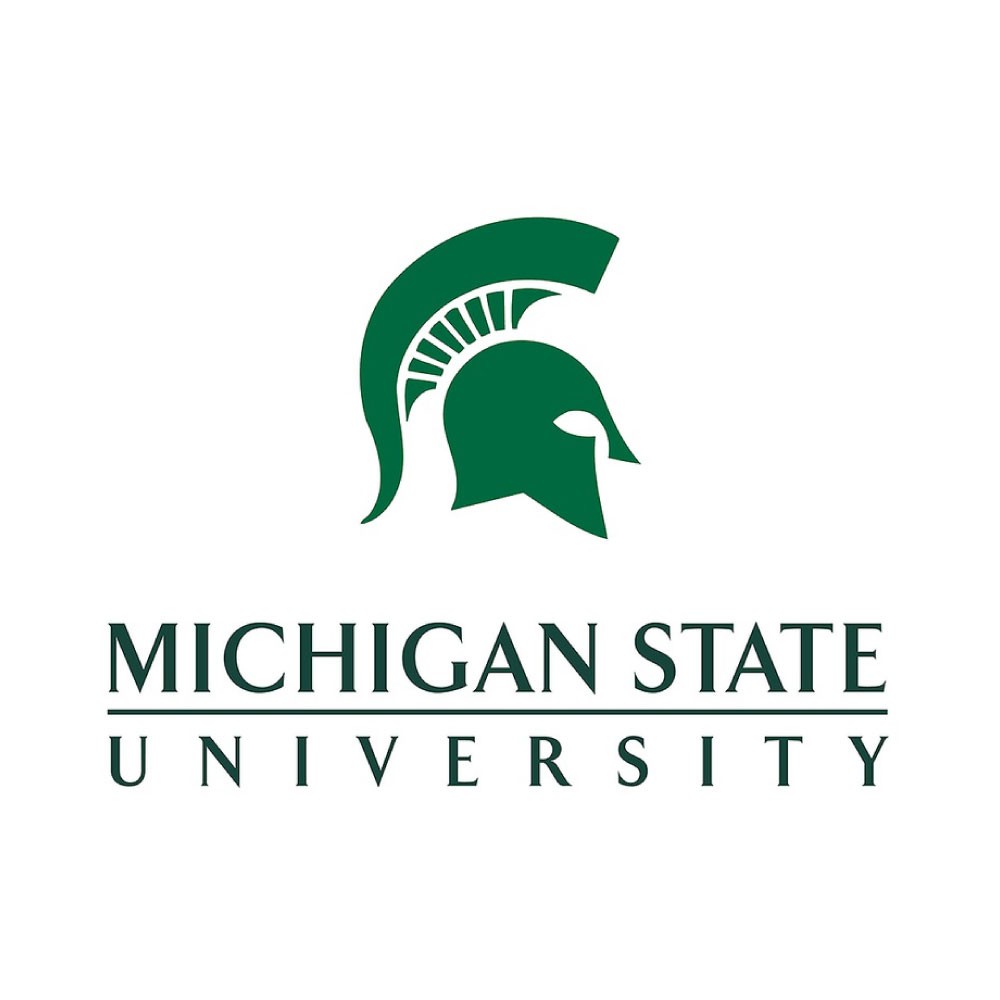
For 26 years in a row, U.S. News & World Report has ranked Michigan State University’s teacher preparation program number one in the nation. MSU is number one because of their commitment to prepare not just teachers, but leaders in and out of the classroom. Within this program, you can choose elementary, secondary, or special education.
This Bachelor of Arts in education program includes at least 20 credits within the teacher preparation program, along with core classes within your major. More than 1,000 hours of classroom experience, along with a full-school year internship is what sets MSU’s program apart from others. You can also enroll in a close-knit cohort program to help support you along the way.
Admission to MSU is competitive. In order to apply, you need a minimum of academic accomplishments, passion to work with students from all backgrounds, and a commitment to inclusion, equity, and social/educational justice. Requirements vary depending on which program you’re interested in, but all require SAT-with-essay scores.
Oklahoma State University
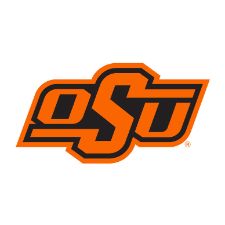
Oklahoma State University’s Bachelor of Science in elementary education program develops strong, teacher leaders who enter the classroom with the skills and knowledge necessary for a successful teacher. In this program, you will get a solid teaching foundation, along with exciting opportunities such as the student teaching abroad program to Costa Rico or Mexico.
Students will complete professional core classes such as Applications of Educational Technologies and Role of Teacher in American Schools. OSU collaborates with the local school system in the ExCel program, where elementary education majors start their student teaching early. Graduates will have completed 124 credits that include practicum experiences, a senior seminar, and an internship in an elementary school.
You can also choose from one of eight minors, including creativity studies, learning and motivation, and recreational management and therapy. OSU encourages all students to apply to their programs because they review each applicant through holistic and alternative measures. They consider academics, of course, but they also weigh in leadership experience, community involvement, personal and professional accomplishments, and character.
University of Georgia
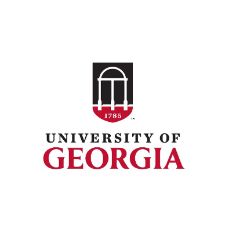
The University of Georgia’s Mary Frances Early College of Education features a BSEd in elementary education to prepare students for a K-5 teaching career through small classes, a strong educational foundation, and hands-on experience every semester. If you know you want a master’s degree eventually, you can also pursue the joint BSEd/MEd pathway and earn two in one!
Cohorts are an effective practice in educational programs. Working in a close-knit group towards a common goal brings motivation and support, which is why students are placed in cohort-based classes. You will also gain classroom experience starting in your first semester and every semester after. In these field-based learning experiences, you will observe, assist teachers, and work with children.
To align with their practice of small, tight-knit classes, UGA only admits 75 students per year. Minimum criteria include a 2.80 GPA in core classes and a passing score on the GACE Program Admissions Assessment. UGA says that if your grades don’t represent your future success, please note that in the essay/statements portion of the application.
Eastern Michigan University
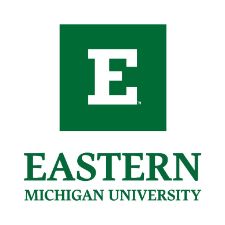
Eastern Michigan has a rich history of educating future educators. It opened in 1849 as a teacher’s college, and today it offers more than 350 undergraduate and graduate programs to its 21,105 students! EMU’s BS in elementary education early childhood comprehensive prepares students to earn teaching certification, as well as endorsements, which signify that the graduate has specialized expertise and proficiency with children birth to third grade.
In addition to general education hours, this program requires 72 credits that include liberal arts and content requirements. Sample courses include Assessment of the Young Child and Intentional Teaching in the Content Areas. Students will begin practicum hours in the first semester and finish the degree with two semesters of student teaching.
Graduates of this program who earn the Early childhood general and special education (ZS) endorsement are certified to teach all subjects in grades K-5 and self-contained classrooms in grades 6-8. Some graduates teach programs for inclusive early childhood programs such as Great Start Readiness Programs or Head Start.
University of Toledo
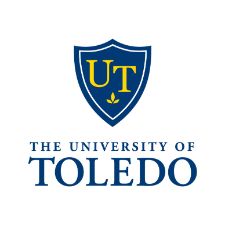
Earn a bachelor’s of education in early childhood education (grades Pre-K-5) from the University of Toledo in Ohio, and you will be working alongside some of the top-quality teachers in the state. UToledo teaches the “Whole Child Approach” to education, meaning it’s not all about the classroom. It’s about developing the skills to meet the emotional, psychological, and physical needs of children.
UToledo’s early education majors learn by doing. This may look like helping faculty with research, volunteering in the community, or working with military children and families through Camp Adventure – that is, in addition to taking courses such as Infant/Toddler Curriculum and Foundations of Literacy. Students will spend at least five semesters working with a variety of students from 150 different Toledo schools in the area.
Graduates can add a preschool special needs or reading endorsement to extend their career options. Some graduates decide to earn a master’s degree, and they are well prepared. Interested in this program? Standard admission includes a 2.7 GPA or a 21 ACT/1060 SAT score and a passion to teach children.
Louisiana State University

Ranked 65 among Kiplinger’s Top 100 Public Colleges, Louisiana State University is the highest-rated university in the state. In addition, LSU is known for its continuous, generous financial aid awarded scholarships. Ninety-two percent of all students receive financial assistance, and two in three graduate with no debt. LSU offers high-quality academic programs, including the Bachelor of Science in elementary grades education.
In this interdisciplinary bachelor’s program, you can choose three available tracks, depending on your career goals. You can earn a bachelor’s degree to become certified to teach grades 1-5, you can earn a dual degree in elementary and special education, or you can earn both a BS and a Master of Arts in teaching in just five years.
Students in all tracks will take elementary education and technology courses and complete field work and student teaching hours. In order to pursue this major, you will need at least 24 credits in 1000-level or higher courses, a passing score on the PRAXIS, and a minimum 2.5 GPA.
University of Northern Iowa
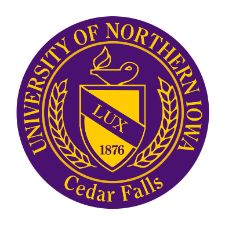
Considering school districts all over the country recruit University of Northern Iowa graduates through the UNI Teacher Fair and the UNI Overseas Recruiting Fair, UNI’s elementary education program K-6 may be what you’re looking for if you want to start teaching right away (and maybe even overseas!)
In UNI’s Bachelor of Arts in elementary education, you will take courses in all core subjects such as reading, math, and social studies, and you begin field experiences during your first year. You can also choose from one of five minors, including educational technology and literacy education to further tailor your career goals.
You will complete more than 100 hours of classroom experience before you start student teaching during your final year. You will also have the opportunity to attend on-campus conferences such as the African-American Children and Families Conference or the Carlton-Mellichamp Lecture in Education to hear nationally known speakers.
University of Massachusetts-Amherst

Massachusetts, along with 47 other states, reports shortages in special education teachers, particularly teachers for those with moderate disabilities. With special education teachers needed, strong programs are vital. UMass offers a BA in education with a concentration in special education for moderate disabilities that prepares graduates to work with kids Prek-8 or 5-12.
In this program, you will take research and evidence-based practice courses in special education topics. Sample courses include Universal Design for Learning in Special Education and Reading Instruction for Students with Mild/Moderate Disabilities, and Educational Issues in Real World Contexts (which includes an integrative learning experience). Practicum and student teaching hours enforce what you learn in the classroom.
For admission into this program, you need to submit unofficial transcripts (minimum 3.0 GPA), a personal statement, and Massachusetts Tests for Educator Licensure (MTEL) scores in the Communication and Literacy Skills, General Curriculum, and Foundations of Reaching sections. UMass offers free MTEL prep workshops for help studying for this exam.
Appalachian State University
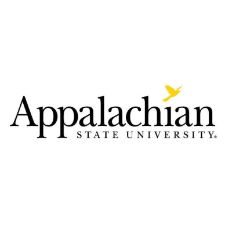
If you’re drawn to the mountains, check out Appalachian State University, nestled in the Blue Ridge Mountains of North Carolina. ASU’s Reich College of Education offers a Bachelor of Science in elementary education is one of the best in the state and through coursework, multiple field experiences, and internships prepares you to teach grades K-6.
This program entails 61 hours of major requirements, including courses like World Literature for Children and Integrating Media and Technology into Teaching. You can choose to add an academic concentration from 17 subjects such as diversity studies, global issues, or language and literacy. ASU collaborates with universities in other countries, so as an education student you have the opportunity to pursue international student teaching.
To apply to ASU’s elementary education program, you need to be accepted to the school and then apply to the teacher education program. You will need a minimum of 45 semester hours earned (including 12 from ASU), and a minimum GPA of 2.7. In addition, prerequisite courses include RC 1000, FDN 2400, and CI 2300.
University of Kansas
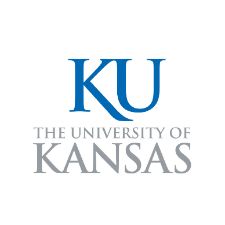
Ranked # 19 in the nation by U.S. News & Report, the elementary education program at the University of Kansas features some great opportunities for future K-6 educators. At KU, you can earn a BSE in elementary education that will qualify you to pursue a teaching license plus other endorsement options such as TESOL or special education.
After completing KU’s Core educational goals, you will take content area and teacher education courses, including Diversity, Equity, and Inclusion in K-12 Schools and Social, Emotional, and Well-Being of Students in Schools. You will complete internship and teaching student hours, and present a teaching portfolio during your last year.
KU offers a study abroad opportunity where you can complete your student teaching in another country. For ongoing support, you can join Rising Educators, a student-led organization for future teachers. If KU sounds like a good fit for you, you need a 2.75 cumulative GPA in undergraduate course work and no grade lower than a C in English, math, or communications.
Brigham Young University-Idaho
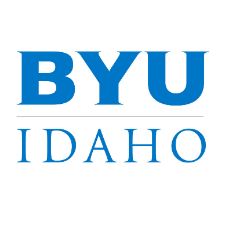
Brigham Young University-Idaho prepares students for fulfilling leadership roles in the home, church, and community. This Christian university provides affordable, high-quality education through their associates and bachelor’s programs, both on campus and online. If you are artsy and creative and want to teach children, you may benefit from pursuing the BA in art education program.
In this program, you will learn how to teach art at various levels (K-12). The 30-credit program involves art courses during the first year and education classes the second. During the final phase of this program, you will complete practicum and student teaching hours, all while working with an experienced mentor.
This major allows students to earn an endorsement in another secondary area, so you can potentially be certified to teach two subjects after graduating. BYU reviews applicants in three areas: church endorsements, academics, and seminary. If this sounds like a good fit for you, check out more on their website.
Arkansas Tech University
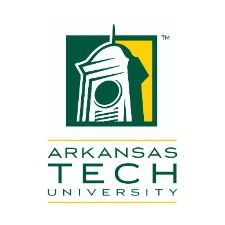
“Never Settle” is their motto, and their mascot, Jerry the Bulldog, represents the “grit and determination” that students faculty at Arkansas Tech University hold. This perseverance is seen through all the departments, including the Department of Curriculum and Instruction at ATU that offers a Bachelor of Science in elementary education K-6 that builds on knowledge and skills as students work through this degree.
This program involves three stages, and to proceed to the next one, you need to keep a 2.7 GPA with no grades under a C. Stages one and two consist of coursework, and in stage three, you will be placed into an internship position, while working on a portfolio that includes your teaching philosophy.
This program is competitive; admission is based on recommendations from both of your assigned advisors. You need a minimum score of 19 on the ACT and a GPA of 2.7 with no classes below a C, a determined, positive attitude (remember the motto!), and a passion for teaching elementary-aged children.
Central Michigan University
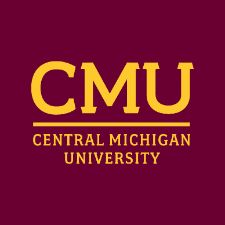
If you are a Central Michigan University Chippewa, you are part of 27,000 students from across the nation and 54 countries. CMU believes in flexible education no matter what stage of life you are in, which is why the 200 academic programs are offered in convenient formats to accommodate busy schedules.
CMU features a Bachelor of Science in education, with an elementary emphasis. You can choose to concentrate on integrated science or early childhood development and learning. You will take the first half of your courses at Northwestern Michigan College or Lansing Community College and then transfer those credits to the CMU program where you join a cohort of other students.
Students in both concentrations will take a combination of professional education sequence and concentration courses and either complete student teaching in Michigan or overseas through the student teaching abroad program. Classes are offered on campus, online, or in hybrid formats for extra convenience. Interested in Central Michigan University? You’ll need a GPA of at least a 2.0 in previous coursework to apply.
Ball State University
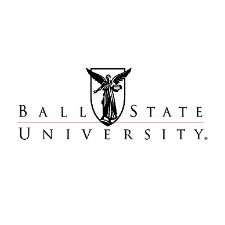
“As Cardinals, We Fly,” is Ball State University’s slogan, and boy, do they. There’s a lot of excitement at this top-ranked school in Muncie, Indiana, including at the Teacher College. BSU offers a myriad of education programs, including a Bachelor of Arts or Science in elementary education. You have a lot of choices to tailor this program to meet your interests and career goals.
At BSU, you can choose from one of 12 specific areas of emphasis in BS or BA in elementary school education. You can also double major in elementary education and special education or early childhood education. You will take 102 credits of required courses and then 12 credits in your concentration.
A great part about this program is you will begin working in the field with students and professional teachers during the beginning of the program. This experience, coupled with your coursework, will prepare you for student teaching either locally or abroad. You may even get to student teach in England, Australia, or Germany!
University of Nebraska at Kearney
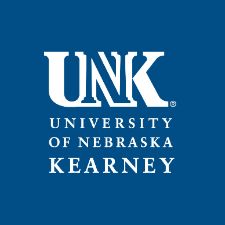
The University of Nebraska consists of four unique campuses, each one with distinct features and strengths. The Kearney campus features a “private school feel” and focuses on undergraduate education. UNK’s Department of Teacher Education offers six degree programs in elementary/early childhood education, including the Bachelor of Arts in elementary education.
In this program, you will interact in classrooms right away and throughout your degree. UNK partners with area schools to give students ample opportunities for field experiences.
You will take courses such as Partnerships with Families, Children’s Literature, and Non-Rhythmic Physical Education. During your final semester, you will complete 16 weeks student teaching at a local elementary school.
While some students graduate from college with a load of debt, UNK promises that Nebraskans “don’t let cost get in the way of earning a degree,” which is why they offer free tuition for students who meet qualifications. UNK also offers scholarships, financial aid, and assistance on top of their affordable tuition.
University of North Carolina Wilmington

If studying along the beaches of coastal Carolina sounds appealing to you, check out the University of North Carolina at Wilmington. Earn your Bachelor of Arts in elementary education K-6 from UNCW from dedicated, professional faculty in either or both on-campus and online formats. Choose from nine concentrations, such as behavioral studies or math and technology to match your career goals.
UNCW’s BA in elementary education requires 64 credit hours of education courses and 18 hours in a specific concentration. If you choose international studies, you will spend a semester studying and teaching in another country! During your junior year, you can tutor students to gain some experience and begin classroom field placements. During your senior year, you will complete a semester-long internship.
To apply to this program, you must first apply to UNCW, and during your sophomore year, apply for admission to Watson College. Meeting with faculty and joining the Education Living Learning Community to meet other pre-education majors is a good step to move you towards admission into this program.
Dakota State University

Dakota State University in Madison, South Dakota, is nationally-ranked institution with small, inclusive classes. DSU features a dynamic, nationally accredited Bachelor of Science in elementary education degree that includes stimulating courses, research and field experiences, and a year-long residency program. You can earn endorsements in K-12 technology, English as a second language, and coaching.
This program includes a solid sequence of both core and content classes to broaden your knowledge and skills for an effective teaching career. You will take courses like Foundations of American Education and Multimedia Web Development in Education. Undergraduates have the opportunity to collaborate with faculty on research in programs like the Student and Faculty Research Initiatives.
During your final two semesters, you will complete a yearlong residency/student teaching in local districts with formal partnership connections. Does DSU sound like a fit? To enter as a freshman, you need to meet one of three requirements in the GPA or test scores and coursework categories.
Mississippi State University
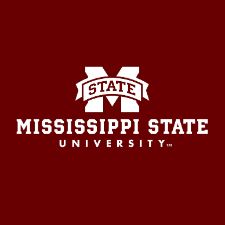
If you’re looking for a flexible online program in elementary education, check out Mississippi State University’s Bachelor of Science in elementary education. You can concentrate on either early childhood or middle school education and complete your student teaching internship in or near your hometown. The early childhood concentration also includes endorsement in special education.
This online degree parallels the on-campus degree program, so you will earn the same degree as you would on campus. You will complete four phases in MSU’s teacher education program starting with admission to the university and ending with a C or higher in all courses and successful completion with the teaching internship.
Admission to the elementary education online program requires a minimum 2.5 overall GPA, 40 hours of verified work experience with children, and required test scores on the ACT or Praxis Core exams. Another perk: as an online education student, no matter what state you are in, you will pay the in-state tuition rate.
Liberty University

Liberty University, a Christian institution in Lynchburg, Virginia, continuously ranks high in convenience and affordability. The 100% online Bachelor of Science in elementary education features 8-week classes with rolling start dates, so you can start at any time during the year. This program is intended for those who already have teaching licensure or plan to complete a licensure-track graduate degree.
To decrease costs for students, electronic textbooks are provided, saving at least $800-$2,000! In addition, LU offers affordable tuition that has not risen for the past five years and counting. Veterans, those currently serving in the military, along with their spouses, qualify for credits for military training and reduced tuition to $250 per credit hour.
Courses in this program include Learning Theory and Portfolio Development and Classroom Management for Teachers. To apply to LU’s BS in elementary education program, you need a minimum 2.0 GPA in all past coursework. LU’s education programs are accredited by the National Council for Accreditation of Teacher Education (NCATE).
Heritage University

Heritage University’s mission statement is to provide high-quality education programs for multicultural populations who may not have otherwise had access to higher education. The university’s motto “Knowledge Brings Us Together,” affirms its values of a diverse, collaborative learning community. At HU, you will encounter small classes (average is only 11 per class!) and personalized support to achieve your academic and career goals.
Heritage University offers several undergraduate pathways for teaching careers, including a Bachelor of Arts in elementary STEM education (innovate) with an English language learners endorsement. STEM focuses on science, technology, engineering, and mathematics and this degree gives graduates the knowledge and skills to teach across the nation or globally.
In this five-semester program, you will take 8-week courses online or in the evenings, to accommodate your current workload. Graduates will be eligible to pursue teaching certification in grades K-8. If this program sounds like one you want to pursue, you need to maintain a 2.8 GPA for your past 30 credits earned and pass three subtests of the WEST-B exam.
Hofstra University
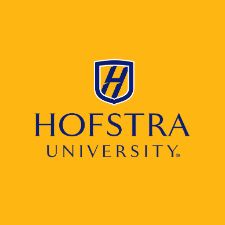
Some academic institutions, like Hofstra University, offer dual majors to ensure higher marketability upon graduation. Hofstra University, a 240-acre campus in Long Island, New York, offers a unique Bachelor of Arts dual certification program in early childhood (birth to age 2) and childhood (grades 1-6) education. This program focuses on multicultural populations and informational technology to ensure graduates are well prepared to teach children in diverse areas.
In this program, you will take courses in childhood development, inclusion practices, and literacy. In your final year, you will complete three student teaching placements including kindergarten, grades 1-2, and grades 4-6. Graduates will have completed at least 134 credit hours and will meet New York State’s requirements for teaching certification.
Admission to Hofstra University’s teacher education program depends on multiple standards, and the department understands that one single criterion does not accurately depict a students’ chance of success in this program. While the requirements include a minimum GPA of 3.0 in 45 credits of coursework and a passing score on Hofstra’s Writing Proficiency Exam, if you don’t meet these requirements but believe you have other areas that may compensate, you should still apply.
Frequently Asked Questions
The best degrees for teaching include a Bachelor’s or Master’s in Education, focusing on subjects like Elementary Education, Secondary Education, or Special Education. Bachelor’s degrees in specific subjects such as Mathematics, English, or Science can enhance teaching qualifications and allow you to show yourself as an expert in your field of focus.
The Bureau of Labor Statistics reports the average pay for teachers is as follows:
• Kindergarten & Elementary School Teachers: $61,620/year
• Middle School Teachers: $61,810/year
• High School Teachers: $62,360/year
• Special Education Teachers: $62,950/year
• Career & Technical Education Teachers: $61,450/year
• Postsecondary Teachers: $80,840/year
It takes four years, on average, for full-time students to complete a bachelor’s degree in education. Most programs require 120 credits, which means students take between 12 and 15 credits each semester to graduate in four years. Online education programs offer accelerated classes and allow students to finish a degree in less time (typically 3-3.5 years).
The main difference is that a teaching degree emphasizes teaching and classroom management, while education has a broader focus. A bachelor’s in education degree covers teaching, but also includes studies in administration, curriculum development, and education policy.
The fastest degree to become a teacher is a Bachelor’s in Education with a focus on fast-track programs. These programs, often called accelerated or alternative certification programs, allow students with existing degrees in unrelated disciplines to become certified teachers in a shorter time frame than the traditional 4-year pathway.
For some students, getting a teaching degree is challenging due to academic rigor, classroom experiences, and assessments. It requires commitment, time management, and a passion for education. Meeting certification requirements and gaining practical teaching experience can pose challenges. But dedication and a genuine interest in teaching can make the journey a rewarding one.
Most elementary teachers get a bachelor’s degree in elementary education. This degree equips you with the necessary skills to teach a broad range of subjects to young learners. You can also pursue additional certifications or endorsements in specific areas like special education to enhance your qualifications for diverse classroom settings.
Specific needs vary by school and location, but the most in-demand subjects include science, technology, engineering, and math (STEM). Teachers with qualifications in a second discipline are highly sought after. If you can teach English and math, you’re going to be a hot commodity for a hiring committee.
